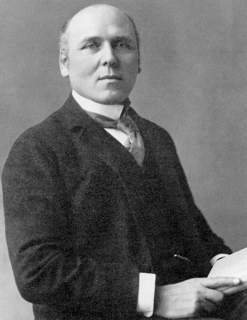A Quote by James Fenton
Metrics are not a device for restraining the mad, any more than 'open form' or free verse is a prairie where a man can do all kinds of manly things in a state of wholesome unrestrictedness.
Related Quotes
I know that one of the things that I really did to push myself was to write more formal poems, so I could feel like I was more of a master of language than I had been before. That was challenging and gratifying in so many ways. Then with these new poems, I've gone back to free verse, because it would be easy to paint myself into a corner with form. I saw myself becoming more opaque with the formal poems than I wanted to be. It took me a long time to work back into free verse again. That was a challenge in itself. You're always having to push yourself.
The State did not originate in any form of social agreement, or with any disinterested view of promoting order and justice. Far otherwise. The State originated in conquest and confiscation, as a device for maintaining the stratification of society permanently into two classes-an owning and exploiting class, relatively small, and a propertyless dependent class. . . . No State known to history originated in any other manner, or for any other purpose than to enable the continuous economic exploitation of one class by another.
Isao had never felt that he might want to be a woman. He had never wished for anything else but to be a man, live in a manly way, die a manly death. To be thus a man was to give constant proof of one's manliness-to be more a man today than yesterday, more a man tomorrow than today. To be a man was to forge ever upward toward the peak of manhood, there to die amid the white snows of that peak.
Whatever you think The Uni-verse is withholding from you, YOU are withholding from The Uni-verse. If you think that The Uni-verse isn't answering your prayers, chances are you aren't listening to your intuition and following it. You are so scared that you ask for new intuition, but that's not how life works. The Uni-verse is constantly whispering to you, nudging you to trust It and take a leap. But if you don't take the leap of faith, then The Uni-verse can't open any more doors for you.
Few things have done more harm than the belief on the part of individuals or groups (or tribes or states or nations or churches) that he or she or they are in sole possession of the truth: especially about how to live, what to be and do - and that those who differ from them are not merely mistaken, but wicked or mad: and need restraining or suppressing.
Tell me again what we're doing here," I said, running a continuous scan of our surroundings. Fang popped some Cracker Jack into his mouth. "We're here to watch manly men do manly things." I followed Fang's line of sight: He was watching the Dallas Cowboys Cheerleaders, who were not doing manly things, by any stretch of the imagination.
There is not really any courage at all in attacking hoary or antiquated things, any more than in offering to fight one's grandmother. The really courageous man is he who defies tyrannies young as the morning and superstitions fresh as the first flowers. The only true free-thinker is he whose intellect is as much free from the future as from the past.




































